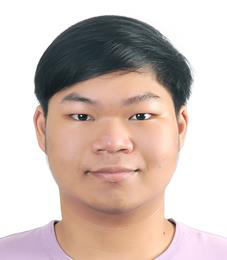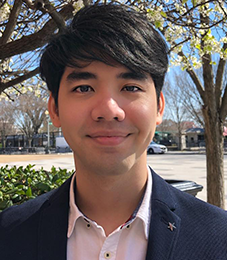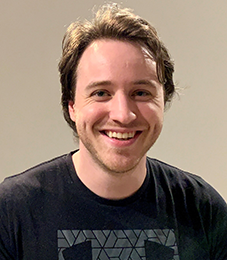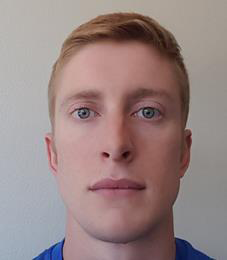Meet the CMKL Ph.D. students
Madison Brewer
Oct 5, 2021
CMKL University is a collaboration between CMU and King Mongkut’s Institute of Technology Ladkrabang in Thailand to administrate the Carnegie Mellon – CMKL | Thailand Electrical and Computer Engineering program. Electrical and Computer Engineering (ECE) students under this Ph.D. program split their time between CMU’s Pittsburgh campus and CMKL’s Bangkok campus. Once they’ve completed their degrees, they will have a Ph.D. from both CMU and CMKL University. Current CMKL Ph.D. students share their paths to the program and reflect on what they are enjoying about the experience.
Yuttapichai “Guide” Kerdcharoen

Source: Carnegie Mellon University
Yuttapichai “Guide” Kerdcharoen’s academic path started with a childhood curiosity around how computers worked.
“When I use it everyday, there's something that tells me I want to know more about it,” Kerdcharoen said. “So I decided to get a higher education in computers.”
He liked to create games and share them with his friends so, as a computer science major, he dreamed of designing a smartphone application. At college, however, Kerdcharoen was introduced to many other aspects of computer science, including data storage, artificial intelligence, and, most importantly, research.
Kerdcharoen, who is from Thailand, wanted to study abroad for graduate school. He attended a lecture by CMU’s Tze Meng Low and decided that the CMKL program would allow him to pursue his goals. In particular, he was drawn to the electrical and computer engineering program that he says rests at the intersection of computer science and engineering.
As a Ph.D. student, Kerdcharoen studies databases and improving the speed of computing with Low, the professor who introduced him to CMU. He still likes to create video games, which he finds relaxing, even after a full day of being an ECE student. After graduation, Kerdcharoen hopes to continue researching and begin teaching.
“It would be sad if I wouldn't have a chance to give this knowledge to others,” Kerdcharoen said. “So I’m also trying to find my way on the teaching path too.”
Kawisorn Kamtue

Source: Carnegie Mellon University
After seeing the neural network AlphaGo defeat professional players in a game of Go, Kawisorn Kamtue became interested in computer science. Especially, he says, in artificial intelligence and computer engineering. Later, he also found inspiration from Iron Man’s computer assistant, J.A.R.V.I.S.
Originally from Thailand, Kamtue also lived in Singapore before studying mathematics and computer science in France. He returned to Thailand and worked for a year before starting his Ph.D. in the CMKL program.
“CMU is always well-known for computer science and engineering, especially AI, which is the field I’m interested in,” Kamtue said. “We have a lot of resources, and we are really close to our advisor and faculty because it’s a very small program.”
Kamtue works with Professor José Moura in Pittsburgh and Professor Akkarit Sangpetch in Thailand. His research focuses on object detection, answering questions such as how many objects are moving in or out of the warehouse.
Long term, Kamtue wants to create something of his own. He hopes to introduce a new paradigm, but right now, Kamtue is only in his second year. Outside of school he likes to play tennis and is trying to learn an instrument.
Matthew Walck

Source: Carnegie Mellon University
Matthew Walck originally wanted to be a lawyer. His dad wanted him to be an engineer, but Walck wasn’t interested. That is, until he learned what an engineer does. Walck liked to learn about how things worked, especially computers, so he attended Texas A&M as an undergraduate electrical engineering major.
After that, he came to CMU for his master’s degree. He researched attacks on bitcoin before taking an industry job working on sensing Internet of Things devices. But ECE Professor and Director of CMU-Thailand Hyong Kim encouraged Walck to apply to the CMKL Ph.D. program.
“So I did,” Walck said. “Thailand is somewhere that’s been on my list of places I’d like to visit. I also like to travel, I like living abroad, so it seemed super fun.”
Now Walck, who is in his second year, researches optical medical imaging with Kim. He looks at how light propagates through biological tissue. He chose this project because the results are immediately useful. While theoretical work is important, there are a lot of intermediate steps before it helps the public, which Walck would rather leave to other researchers.
One thing that Walck quickly noticed about CMU was the personal connections allowed by the school’s small size. His advisors helped him choose classes and make connections with professors.
“It’s cool to have a more personal relationship,” Walck said. “During my master’s it was pretty rare for me not to run into several people I knew, just as I walked through campus.”
Shaun Stevens

Source: Carnegie Mellon University
Shaun Stevens chose electrical engineering as his undergraduate major because he didn’t know much about it.
“I had the least amount of background knowledge about it so I felt like I’d learn the most,” Stevens said. “Also it’s engineering, so it's hard to go wrong with that.”
After completing his undergraduate degree, Stevens spent a year teaching on a reservation in Montana with AmeriCorps. Then he worked for an engineering services start-up in Boise that helped bring product ideas to the market. It was there that Stevens was introduced to CMU—Stevens’ boss, Robert Davidson, earned his Ph.D. from CMU in 1996. Davidson encouraged Stevens to look into CMU’s program, but it was ultimately the interdisciplinary opportunities that brought Stevens to Pittsburgh.
Stevens has traveled to Asia in the past—he stayed with his brother, who lived in Japan, for a month. Stevens liked being there, especially because it was so different from his experience growing up in Idaho. When his advisor, Kim, told him about the program, Stevens decided to apply. And though Pittsburgh is growing on him, he’s excited to go to Thailand.
He currently researches wireless sensing devices. In particular, he has looked at using ambient Wi-Fi and high pitch frequencies for the devices. Stevens hopes to return to industry after graduation because he liked the group work and problem-solving he did on the job. Outside of class, Stevens is quite social, plays guitar, and likes to spend time outdoors.
